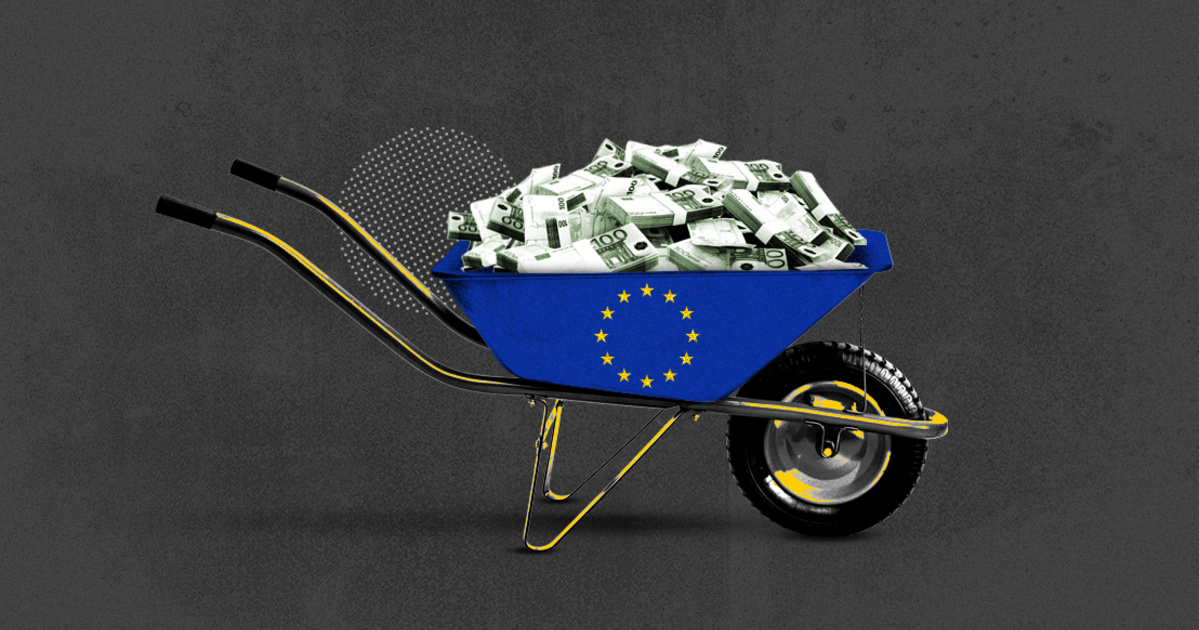While access to 2021-2027 resources and recovery funds is always at the forefront of EU discussions affecting Hungary, the domestic development policy regime also has a primary interest in 2014.–Closing of the 2020 EU session.
In the first session, it may seem strange why we are still talking about the programming period between 2014 and 2020 in the summer of 2023, but it does not hurt to know that in this case the n + 3 rule applies: that is, the cycle lasts seven years plus three years, that is, there is still a chance This year to break the Brussels safe until December.
According to the latest data from the European Commission, the withdrawal rate in Hungary is 88 percent, and there is only half a year left to return the remaining 12 percent of EU funds.
We can play with percentages without exact amounts, but that’s not logical in and of itself. End of 2014–During the 2020 cycle, 32.11 billion euros are available to our country, of which 27.15 billion are financed by the European Union and 4.96 billion are co-national payments. By definition, the 88 percent achieved so far refers to the former, without special payment.
Brussels is not a currency exchange
It also does not hurt to realize that the European Commission is not a money changer, just as it was not worth multiplying this amount of money arriving in euros by 430, it was not worth multiplying by 360 in the last period. On the other hand, based on the schematic exchange rate specified in quote 375, the imaginary fence to date on our part is €23.84 billion, which is equivalent to HUF 8940 billion.
Thus, the amount of 23.84 billion euros is 88 percent of the total amount due to us, of which 81 percentage points are payments based on actual investment and development bills, 4 percentage points are the initial payment, and 3 percentage points are the annual amount. Advance financing.
And what is this 88% or less of it? In this respect, the fact that the average of the EU member states is 81 percent is certainly cause for confidence.
Since Britain’s rapid exit from the European Union, we’re talking about 28 countries here, along with Great Britain, and Hungary is at the start of the middle field, ranking 10th in the comparison. From our point of view, the share for the next few months is 3.31 billion euros, according to the exchange rate already described, more than 1240 billion forints.
Lithuanians and Poles are in the lead
If we look at the top three, we find Lithuania, Poland and Estonia respectively with 95, 94 and 93 percent, and since the Czechs are in sixth place with 90 percent, among the countries of the Visegrad region only Slovakia (77 percent) is ahead of them. Yes, but they are a lot.
Among the countries that joined the European Union on May 1, 2004, such as Hungary, in addition to our northern neighbor, we can count Latvia (79th) and Malta (77th) behind.
If we also add the younger members of the club, we are ahead of the Romanians (81) and Bulgarians (76) who joined in 2007, as well as the Croats who won admission in 2013 (66).
Navracsics’ comrade-in-arms now is János Bóka
From the foregoing, it is clear that 2014–Finishing the 2020 EU cycle without losing money is an easier task than 2021–Pointing out the distractions surrounding the 2027 benefits, not to mention the recovery fund that was set up to deal with hardships after the Covid crisis.
But not that of Benci Tusson, who replaced the outgoing Minister of Justice on July 31, but Janos Buka, who himself was State Secretary in the Ministry of Justice, but is now a full member of the government as Minister responsible for European affairs. Union affairs.
(cover photo: index)












































